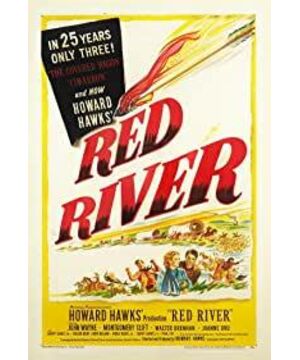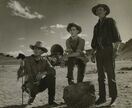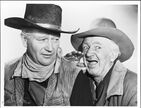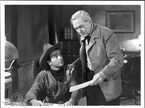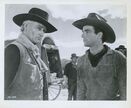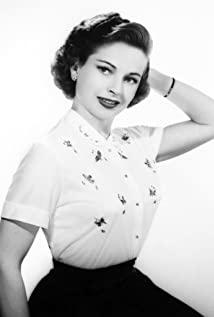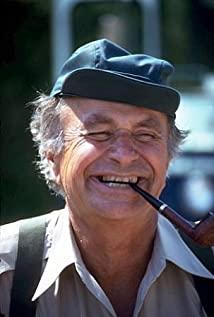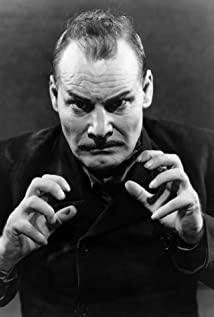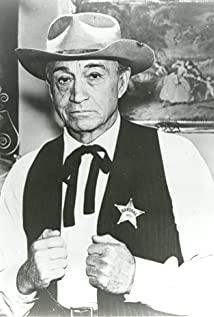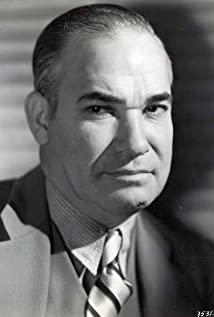"Red River" is based on material that is very different from previous and subsequent Westerns. There is no confrontation between justice and evil in the film, and there is no fierce gunfight between police and gangsters. It just tells the very "ordinary" life of a group of cowboys, but this is a photo of their entire lives.
Contrary to what most westerns describe, cowboys' lives don't always take place in bars and brothels, and they don't have as much leisure for arguments and fights. The life of most cowboys is as shown in "Red River". It is hard and boring, but it is a magnificent song of life.
(1)
Earlier in the first chapter of "History of the West", there was a brief introduction to the life of cowboys, and the life stories of these slightly special cowboys in this film are really real. passed.
In 1865, the Civil War ended and the South was defeated. The South was economically plundered by the capitalists and politicians of the North, and a large amount of currency was outflowed, causing the price of beef to plummet. Large cattle ranchers in Texas and some other southern states suffered heavy losses.
At that time, a cow in Texas was sold for 3-4 dollars, but it could be sold for 30 to 40 dollars in the East. Therefore, in order to minimize losses, ranchers have to find ways to transport cattle to the northern market for a good price.
There were roughly three routes to get cattle out of Texas: east to New Orleans, where there was a trading market; west across the vast plains to the coast of California; or north to Kansas.
But no matter which route you take, you have to travel long distances with a huge herd of cattle. As a result, ranchers hired cowboys for grueling long-distance transportation.
The northern line in this film opened in the spring of 1867 and lasted 25 years. In total, over 9 million cows and 4,000 cowboys have been walked.
The composition of a transport team usually includes about 3,000 cattle, 10-12 cowboys, a cook, a leader, and a young cowboy in charge of about 50 spare horses. A caravan with all provisions and pots and pans.
The cowboys, usually in their 20s, were frontier westerners, natives, European immigrants, Mexicans and even freed slaves. There is an unwritten rule between them that they will never ask each other about their surnames and pasts, so as not to get too familiar with each other when they encounter disputes on the road and need to draw a gun to resolve them.
The departure time of the team is roughly at Qingming or Lixia, when the weather is warm and the grass is fertile. The cowboys ride horses and drive the cattle forward slowly, not too slow, but not too fast, otherwise the cattle will grow longer after a long period of intense exercise. Out of a hard meat, can not sell a good price. So I can walk about 50 miles a day. When they encounter pastures or water sources, they will take a break and build a bonfire by the river.
At night the cowboys camped beside the cattle, the sky was the tent and the ground was the blanket. They ripped a tuft of bristles from the horse's neck and rolled it into the bedding to prevent rattlesnakes from attacking at night. At night, what the cowboys fear most is the herd running away. The wilderness is silent, even the slightest unexpected sound, such as the collision of iron basins, or the howling of wild wolves dozens of miles away, will cause the cattle to flee. If you can't dodge in time, you will be trampled to death. At this time, the experienced old cowboy will chase the leading cow on horseback, shoot the gun to the sky to stop its madness, and if necessary, shoot the cows that are running around to death.
The dangers on the road for cowboys are far more than that. Road bandits, Indians. . . Some people may sleep forever on the road, but others will still walk this difficult and dangerous journey, and their sorrows and joys will soon be forgotten. Because this is their life, this is their whole life.
(2)
This is a film about men, how men stand alone in the face of adversity, persevere, fight, and move towards failure and success.
The film revolves around Thomas Dunson, played by John Wayne, and his adopted son Matthew.
Dunson was destined to be lonely and stubborn from the start. Finn, whom he loved and loved deeply, wanted to stay with him when he insisted on leaving the caravan to open up pastures. "Half the sun is shining, Tom, and the other half is night," she said. "You need a woman, and you can change your mind, even once in your life." But he stubbornly refused. In the end, the caravan was sacked by the Indians, and Tom lost the only woman in his life, the only woman he wanted.
When Tom checked the accident site of the convoy, he happened to meet Matthew who had survived. So Tom left Matthew to build the ranch together.
I have no way of knowing the causal relationship between the sinister circumstances and Tom's stubborn temper, but his stubbornness and desperate persistence kept him alive. In fourteen years, he killed seven people to protect his ranch. Every time he killed a person, he would read a eulogy for him at the grave, but he never hesitated to draw a gun.
Tom spent fourteen years, fourteen years, he developed the original two cows into the largest ranch in Texas, he struggled alone, no matter what he encountered, he could not change his will and determination, facing anything that stood in his way. He will fight and defeat him. This is the whole will of a lonely man, he has an iron will, or his iron will has him. In short, he never changed his mind, whatever he decides will be reckless, and he never fails. Stubbornness and steadfastness are the only qualities a man can be proud of.
However, this time he couldn't find the man who fought him. Beef prices plummeted and he was about to go bankrupt. Matthew saw it very clearly, he was afraid, he was afraid of failure, he was afraid that the dream of more than ten years would be shattered. However, instead of making him weak, fear made him more stubborn. In spite of everyone's opposition, he insisted on taking the route that no one had ever succeeded in driving the herd to Missouri.
On the way, however, the herd ran away. Food and coffee were lost. At this time, news continued to say that the closer Kansas state had been connected by rail. At this time, in the face of complaints from his subordinates and the desire to switch to Kansas, Tom chose to persevere again. Because all along, only perseverance has allowed him to succeed step by step. His life is too difficult to weigh and make decisions at all. All he has is determination and determination. Even under difficult conditions, he forced his men to hurry even harder, and he did not stop to rest when he encountered a water source. Some people tried to escape halfway, but he was killed by his own hands.
But this time he was doomed to be wrong, because Kansas did get the train. This time, even his adopted son Matthew, who had grown into a better gunman and cowboy than him, stood opposite him.
In a duel, his gun was knocked out, and Matthew took the team north to Kansas. For the first time someone could stop his stubbornness, a furious Tom snarled: "You should have let those people kill me because I'm going to kill you. I'll keep chasing you. You'll be in panic every time. Looking back, there's always one time you'll see me, and that's when I kill you."
And when Tom finally catches up with Matthew and has to face a duel, he discovers that the two of them have such similar personalities. In the end, neither of them wanted to really hurt the other.
(3)
This is a film about men, but it is completely inseparable from women.
Finn and Marais are the only two female characters in the film, but they are there throughout. It even determines the development of the plot.
Fen's affectionate confession at the beginning of the film was firmly rejected by Tom. He didn't need her or didn't want her, just because of his stubbornness. This led to Finn being slaughtered by the Indians. These are the scars of Tom's life. Wasn't his deepness and determination engulfed in a wave of hatred and resistance to fate? Otherwise, can a man still regret it?
And Tess Marais took on the important task of easing the conflict between Tom and Matthew. She loved Matthew as much as Fern loved Tom. She saw at a glance that Tom and Matthew were similar in character. So she can always grasp Tom's thinking. He understood Tom's pain. A man fights for a cause and insists desperately, isn't it just so that someone can inherit this cause? Her experience and her feelings were even similar to those of Fern, so Tom's heart was opened at once. He directly felt that Marley should have a son for Matthew.
However, Tom was used to insisting, and he still insisted on "killing" Matthew. Marais finally broke out as the last two men fought in the dirt. It was her outburst that made the father and son put down the air and finally accepted the fact that they care about each other in their hearts.
Tom once brought his mother's bracelet to Finn with his own hands, and when he took it back from the Indians, it was given to Matthew. And Matthew gave it to Marais. The bracelet thus symbolizes the constantly shifting female role.
Interestingly, Matthew also plays a female role to a certain extent. At the beginning, one of Tom's bulls and one of Matthew's cows were combined into a pasture. Matthew became a symbol of female character in front of Tom. In front of Matthew, Tom was always domineering and headstrong. He always thought Matthew was too weak. .
And a conversation between Tom and Marley is also worth pondering. He hopes that Matthew's son can inherit the ranch, but he keeps calling this child his son.
Although there is no doubt that Matthew and Tom have a simple father-son relationship in the movie, a superb director like Howard Hawks can always give people a sense of unpredictability, which actually hints at the many gay themes of Western movies and Westworld. There will be a special discussion on this later.
No matter how persistent a man is, he has no fear, no matter how straight his story is, the story is still inseparable from women in the end.
The Red River in this film, today's Red River, is the border between Oklahoma and Texas. Oklahoma on the North Shore has historically been an Indian settlement, the "Indian territory" in the movie.
If "Flying Off the Mountains" is John Wayne's famous work, then "Red River" has established his acting and first-line star status in Hollywood. It is said that John Ford sighed after watching the film, "I didn't expect John Wayne to be able to act as a son of a bitch", and this led to the "Cavalry Trilogy" and "The Searcher" that the two collaborated on afterward.
View more about Red River reviews


